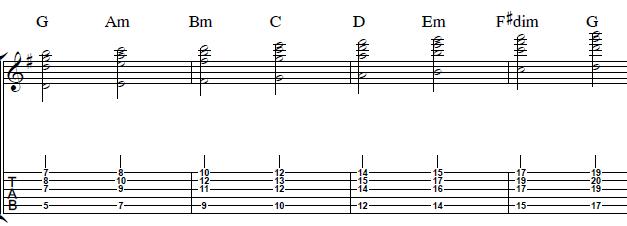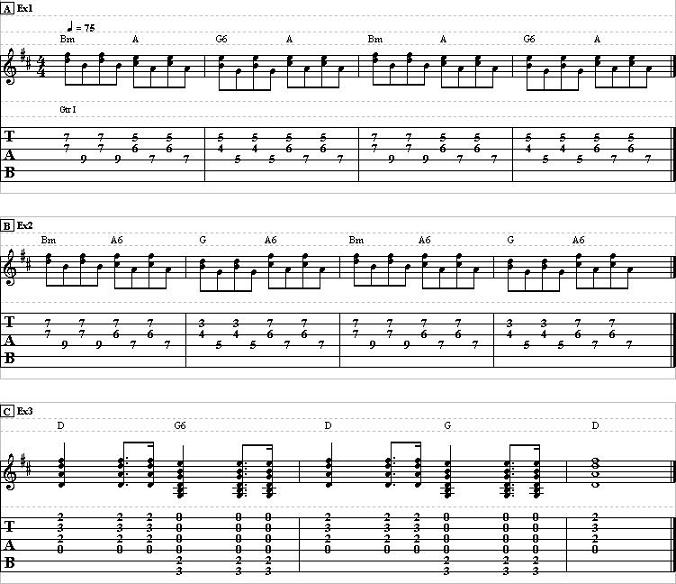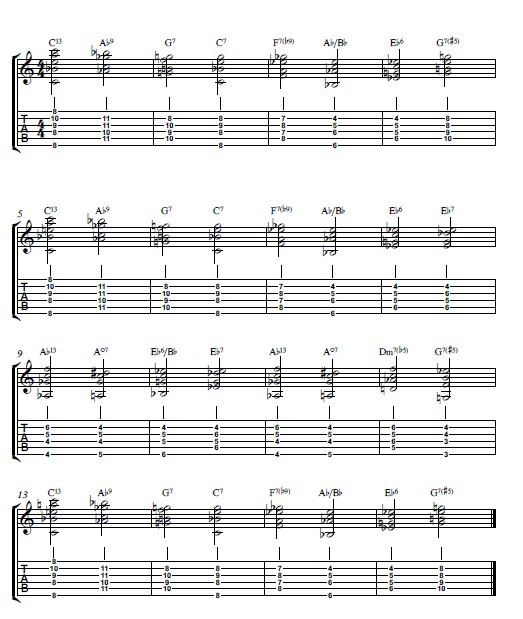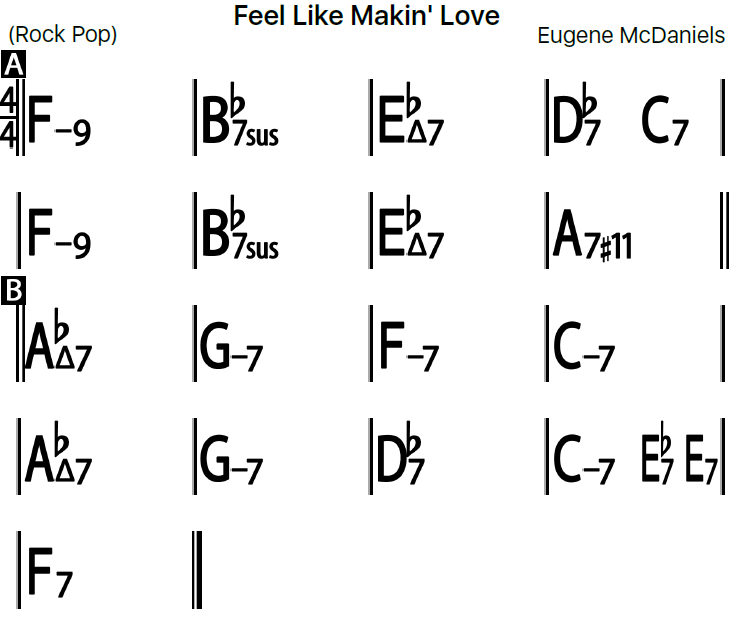 Check out this Chord Triads in the Style of Eric Johnson – Guitar Lesson on Chord Voicings from Jon MacLennan.
Hey, how’s it going this is John McLennan with Guitar Control, I want to show you today is some Eric Johnson style voicing and some interesting ways of having just basic triads on the upper strings and then the 5th and the bass on a lower string gives you an interesting sound.
Here’s what we’re looking at. We’re looking at a G triad on top: 7, 8, 7 and then a 5 in the bass. This becomes your G chord. Having the 5th and the bass gives you a real strong sound. So if you’re using a lot of distortion and you just want a real powerful sounds, it’s a good way to go. It’s this kind of voicing.
Then I move that up a whole step and I’m going to the next chord in the key, which would be — if we’re in the key of G, the next chord would be A minor. I now change my top triad to become a minor triad. So here I have 7th fret, 9th, 10th, 8th and this gives me a nice A minor chord. I move that up a whole step to get B minor. Then I go to the shape that I started with, back to major triad on top and the 10th fret. This gives me a C chord here. Then I move that up a whole step for D. So just real nice voicing here.
Let’s keep going. Then we get an E minor, which is going to be that second shape again, changing in the minor triad. It’s this. You can even drop the low E string in there if you want. And then the second to last chord, but the 7th chord in the scale is going to be F sharp minor 7, flat 5 or F sharp diminished, in this case. Which will be this, which will be the 15th, 17th, 19th, 17th and then finally I’m going to end here on the very first chord that I started with, this G, but up the octave.
So just a real great sound with these chords. Definitely in the style of Eric Johnson. So be sure to get the tab for this by clicking the link below and you can use some of these voicing in your playing. Find a song and try to right away apply the new chords. Some of these shapes are tougher, so be sure to practice just going up and down the
scale first and then use it in a song.
Thanks for watching. We’ll see you in the next lesson.
Check out this Chord Triads in the Style of Eric Johnson – Guitar Lesson on Chord Voicings from Jon MacLennan.
Hey, how’s it going this is John McLennan with Guitar Control, I want to show you today is some Eric Johnson style voicing and some interesting ways of having just basic triads on the upper strings and then the 5th and the bass on a lower string gives you an interesting sound.
Here’s what we’re looking at. We’re looking at a G triad on top: 7, 8, 7 and then a 5 in the bass. This becomes your G chord. Having the 5th and the bass gives you a real strong sound. So if you’re using a lot of distortion and you just want a real powerful sounds, it’s a good way to go. It’s this kind of voicing.
Then I move that up a whole step and I’m going to the next chord in the key, which would be — if we’re in the key of G, the next chord would be A minor. I now change my top triad to become a minor triad. So here I have 7th fret, 9th, 10th, 8th and this gives me a nice A minor chord. I move that up a whole step to get B minor. Then I go to the shape that I started with, back to major triad on top and the 10th fret. This gives me a C chord here. Then I move that up a whole step for D. So just real nice voicing here.
Let’s keep going. Then we get an E minor, which is going to be that second shape again, changing in the minor triad. It’s this. You can even drop the low E string in there if you want. And then the second to last chord, but the 7th chord in the scale is going to be F sharp minor 7, flat 5 or F sharp diminished, in this case. Which will be this, which will be the 15th, 17th, 19th, 17th and then finally I’m going to end here on the very first chord that I started with, this G, but up the octave.
So just a real great sound with these chords. Definitely in the style of Eric Johnson. So be sure to get the tab for this by clicking the link below and you can use some of these voicing in your playing. Find a song and try to right away apply the new chords. Some of these shapes are tougher, so be sure to practice just going up and down the
scale first and then use it in a song.
Thanks for watching. We’ll see you in the next lesson. 






